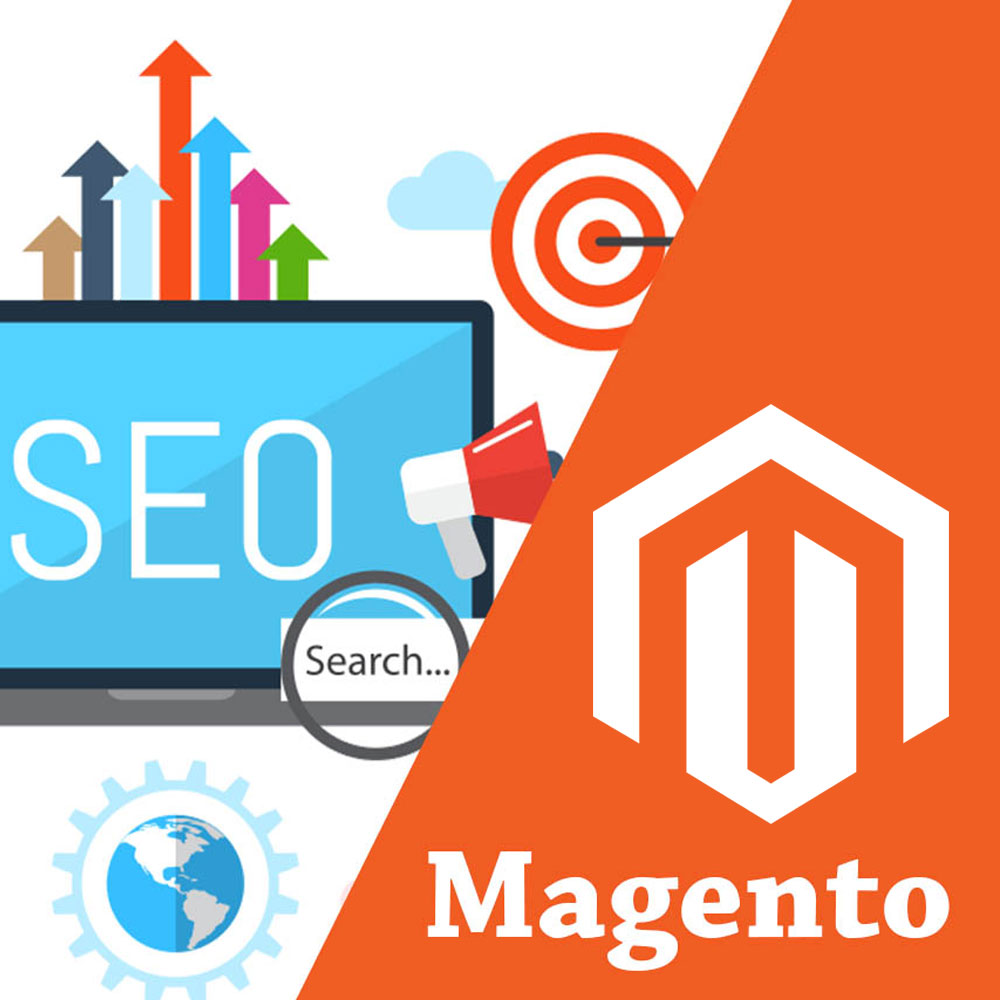
Magento may have taken a few years to grab everyone’s attention but it certainly has taken the digital world by storm now. Undeniably, the attraction for owning a Magento website is its flexible platform especially if you own an E-Commerce site as it is fully customisable, meaning that you can finally work with a platform that can grow with your business as opposed to having to develop a completely new website when your company evolves.

As amazing as the Magento Design platform is though in terms of creativeness and development, we’ve said it before but it bears repeating, no website will bring you success by itself. You need to market it correctly in the digital world.
You need SEO (search engine optimisation) to ensure your site is indexed correctly by search engines such as Google. The great thing is that if you can’t afford an SEO company on a monthly basis, the Magento platform can be configured to include an SEO theme in the background which will enable you to optimise the basics of your website easily.
I agree that ‘content is King’ but all good content still needs to be structured with SEO both for a good user experience and for search engines to be able to identify what each of your pages is actually about. Google doesn’t want to ‘read all about it,’ Google just wants to be able to identify quickly whether your web page is relevant to a user’s search. This is why you need to ensure all of your Title Tags, H1’s and Meta Descriptions need to be implemented on all of your web pages and although these need to be optimised with your top keywords, search engines do not appreciate keyword stuffing.
Long gone are the days where you can effortlessly just chuck a load of keywords that you want to rank for into your Meta and Title Tags. Search engines don’t like this so leave the stuffing to Christmas. Your Title Tags and Meta especially, need to make sense to a user as ultimately, it is this that is going to appear in SERP’s (search engine results pages) to inform a user what your page is about or what you have to offer, to entice them to click through to your site.

How To Implement SEO Into Your Magento Web Design
You want to try and keep your Title Tag to a maximum of 66 characters to avoid the full Title Tag being cut short in SERP’s. Try and create a hierarchy with your keywords and feature the most important keywords at the beginning of your Title Tag where possible (as long it still reads well). All words need to be capitalised.
Your Meta should be a 150 character description about the page and the service or product this has to offer with a ‘call to action’ in it, such as ‘buy now’ or ‘contact us today.’
Your content of the page then needs to be structured in a way that search engines can read it. You may have heard of H1’s which are the most important headers to feature. Every page should feature an H1 tag. This is often the title of the page if you want it to be visible on your site but should always include the top keyword for the page eg: ‘UK Plumbing Courses for Beginners.’ This is good if your top keyword is a variation of ‘UK Plumbing Courses’ or ‘Beginners Plumbing Courses UK.’ It helps Google to identify that your page can help users searching these terms.
If you feature any sub headers on your page though then it is good to structure these with H2’s, H3’s and H4’s. It’s quite simple really, all headers on a page need to be coded in numerical order in your HTML page source as Google will read the content of your page by your headers. If your headers fall out of sequence and are not in the correct order then the search engines will stop reading your page, or index it lower as it is not helpful to their users.
This is why you do not want your company logo to be your H1 as every page should have an individual H1. Even if you have a large Magento E-commerce site that requires Dynamic Meta because your products are constantly changing within each category of your site and it would be a pointless chore writing individual Meta for each product, the Meta is still different for each page as you can code it to pull in individual brands and products. So whilst you only draft one Title Tag, Meta Description and H1 they will still be unique to every page in one category.
You can have your Magento Platform designed to include a template for you to implement these SEO techniques into each page so you can perform the basics without any additional cost.

With over two decades of web design and development expertise, I craft bespoke WordPress solutions at FallingBrick, delivering visually striking, high-performing websites optimised for user experience and SEO.




